Real estate (RE) projects developed in Lithuania traditionally compete for the title of the best in the competition “For Sustainable Development,” organized by the Lithuanian Real Estate Development Association (LNTPA) and partners from the Academy of Sustainable Development.
The competition, held for 17 years, selects the best residential, commercial, public, and multifunctional RE projects completed over the past year.
This year, the competition has reached a record number of participants—37 RE projects will compete to be the best in their categories: 18 will vie for the Main Prize, and 19 will seek the Future Prize award.
The total investment of the projects competing for the Main Prize amounts to around 370 million euros. Separate investments in public infrastructure exceed 4.5 million euros. These RE projects have introduced about 225,000 square meters of space for living and working into the market and created over 4,000 parking spaces.
The fundamental principle of the competition “For Sustainable Development” remains consistent and unwavering—sustainable solutions are mandatory in the implementation processes of RE projects.
“Today, sustainable RE development is inseparable from attention to the environment, principles of social responsibility, and governance, ensuring a sustainable relationship with the world around us. The responsibility for our environmental impact must be uncompromising—from the business community, the public, and relevant state institutions alike. Therefore, we must firmly adhere to the green course while creating humane, intelligent, and responsible cities. And today, this is no longer an aspiration—it is reality,” says Mindaugas Statulevičius, head of the LNTPA and chair of the competition’s jury.
M. Statulevičius adds that today’s RE market is undergoing an intensive search for balance between meeting human needs and fulfilling the exceptionally high qualitative requirements for project implementation:
“This raises the question—what must an RE developer give up in the course of a project to meet the numerous regulatory requirements and procedures, and does the final product meet the end-user’s needs? Is it accessible? Experience shows that it is not always possible to achieve the much-sought balance in every case. Especially since each requirement affects the final market price of the product.”
Traditionally, readers of the competition partner news portal, 15min.lt, will also select their favorite project. Voting will take place in late November through early December.
In 2024, the best residential project was recognized as “Vilnelės Skverai,” developed by the RE company “Merko statyba” (architect: Tadas Balčiūnas). The project “Viešnagė” in Palanga (architect: Donatas Rakauskas), implemented by the company “Hanika,” part of the “Lumont” group, was named the best leisure RE project. The best public RE project was the International American School (architects: Linas Naujokaitis, Eglė Naujokaitytė, Alicija Grigūnienė, Airė Žaunerovaitė, Urtė Aidukienė, Darius Varanavičius), implemented by “Conres LT” and “Baltic Engineers.” In the commercial RE category, the “Teltonika Technology Center” in Molėtai (architects: Paulius Latakas, Kristina Šimkūnaitė, Andrius Gečys, 2L Architects; developer: “Contestus”) was victorious.
The Future Project award was given to the “Business Stadium Central” project, developed by “Hanner,” with architecture by the famous Zaha Hadid Architects. Meanwhile, the public’s vote went to the “co-living” and “co-working” project “Youston” (architect: Regina Venckievič), developed by “Kaita Group” (formerly “Baltic Asset Management”).
Key criteria for evaluating the projects in the competition “For Sustainable Development” include:
- The RE project’s concept alignment with sustainable urban development and the creation of a high quality of life;
- Architectural quality;
- Respect for nature and cultural heritage;
- Advanced design and construction solutions, technological innovation, and uniqueness;
- Energy efficiency and resource-saving solutions;
- The project’s fit with the real estate market’s needs and its economic benefit in creating added value for the local economy;
- The organization’s reputation in society and business ethics.
Competition jury:
- Mindaugas Statulevičius, LNTPA president, jury chair;
- Asta Rokickienė, Head of the Architecture and Innovation Policy Group;
- Dr. Dalia Bardauskienė, member of the Lithuanian Architects’ Union, ISOCARP—International Society of City and Regional Planners;
- Alvydas Kvedaravičius, expert from the Lithuanian Builders’ Association;
- Prof. Linas Naujokaitis, board member of the Vilnius Chapter of the Lithuanian Architects’ Union, Associate Professor at the Vilnius Gediminas Technical University’s Faculty of Architecture;
- Julius Šeibokas, board member of the Chamber of Architects;
- Assoc. Prof. Dr. Kęstutis Čiuprinskas, Vilnius TECH Department of Building Energy, Vice-Dean of the Faculty of Environmental Engineering;
- Martynas Trimonis, Head of Real Estate Clients at AB “Swedbank”;
- Evelina Povilaitytė, editor of the real estate section at “Verslo Žinios”;
- Kristina Kanišauskaitė-Šaltmerė, journalist at the 15min group.
